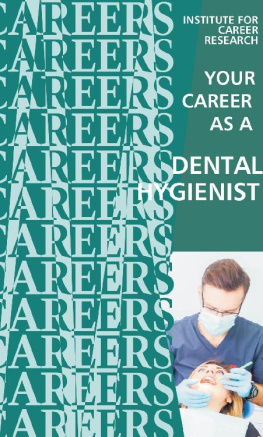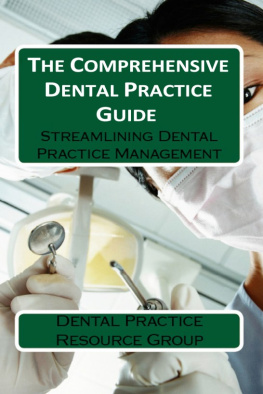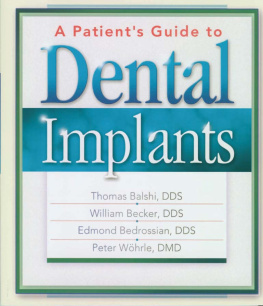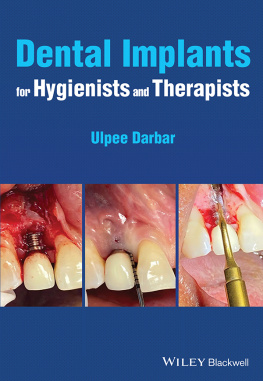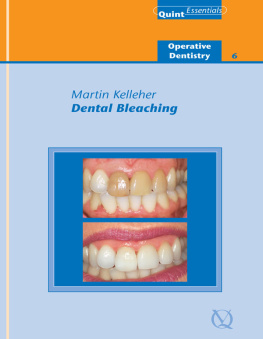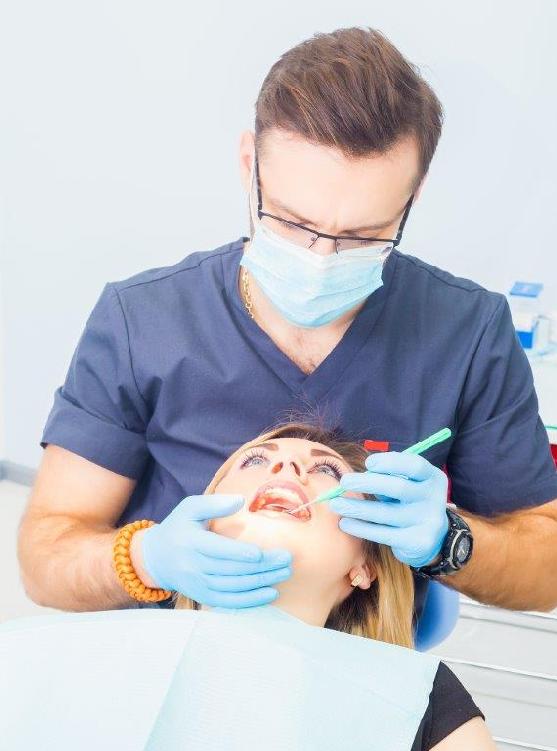
HELPING PEOPLE ACHIEVE AND MAINTAIN OPTIMAL ORAL HEALTH
Earnings
- The median annual salary for dental hygienists is about $75,000,
- The top 10 percent of dental hygienists earn about $100,000.
- The bottom 10 percent earn about $50,000.
Traits Required
- People - oriented
- Enjoy helping others
- Possess patience
- Calm demeanor & an empathetic ear
- Physical stamina
- Good communication skills
- Work well with others
- Ability to follow directions carefully
- Excellent manual dexterity & eye-hand coordination
The Work You Will Do
- Develop, implement & evaluate dental hygiene plans
- Obtain, evaluate & monitor dental & medical histories of patients
- Examine teeth & oral structures, clean & polish patients' teeth
- Assess & record the presence of diseases or abnormalities in patients' teeth & gums
- Educate patients on how to practice good oral hygiene
- Assist dentist in treating patients
- Place or remove temporary fillings & periodontal dressings
- Remove sutures
- Administer local anesthetics & nitrous oxide/oxygen analgesia
Where You Will Work
- Private dental practices
- Public or private school system
- Nursing homes
- Private businesses
- Corporate health facilities
- Public health agency
- Community dental clinic
- Colleges, universities or at dental schools
- Hospitals
Education Required
- Associate degree or certificate>
- Bachelor's degree
Pluses
- Opportunity to help people
- High demand for dental hygienists
- Excellent employment outlook for the future
- Flexible work schedules
- work in comfortable, clean & well-lit environment
- Excellent salaries
Minuses
- Stand for many hours, bending & twisting.
- At risk for contracting serious infectious diseases
- Comprehensive benefits packages may not be provided
- License is not portable
Introduction
Dental hygienist is one of the most challenging healthcare careers. It is both physically and emotionally demanding and also requires a high level of intelligence. At the same time, it is a highly rewarding profession, providing the dental hygienist with opportunities to help many children and adults on the path to better health.
To excel as a dental hygienist you must have stamina, dexterity, and intense concentration. You must be a skilled visual observer and also a good listener, able to pay attention to detail and sort out the important data. In addition, you must be able to interact well with both colleagues and patients and, with the patients, have the ability to explain what you are doing when treating them and what they need to do to maintain their own dental well-being. This educational aspect of the work is viewed by many dental hygienists as the most important component of their work. In fact, dental hygienists are in some ways the most important health educators with whom many people ever come in contact.
Above all, you must have an empathetic nature, understanding that the patients you see are often in pain. You must be able to put them at ease, to the greatest degree possible under the circumstances, and proceed with your work with the utmost delicacy and care. For many patients, the problem is not pain as much as it is fear, not necessarily of you, but of simply being in a dentists office and in the treatment chair. These patients require your compassion. Their fears may not reflect the reality of the experience, but they are nonetheless real for those patients.
This is a career that offers independence, even when working under the auspices of a dental practice. Hygienists work alone, usually in their own treatment rooms. While many states in the US still require that a hygienist work in a dentists office, in recent years most states and many Canadian provinces have decided to allow them to work out of their own offices, or in clinics or other healthcare settings without the presence of a dentist. Many dental hygienists are extremely excited about these changes. They note that the public in general is strongly in favor of having increased access to healthcare professionals, especially those working with under-served populations. It is a promising development for these communities to have access to easy, convenient, affordable dental care. As these changes take place, the availability of dental hygiene in schools, hospitals, nursing homes, and programs such as Head Start, can lead to a fundamental change in the overall health of the nation, with the cost of dental care reduced because of the preventative work that is being done.
All of this makes it a great time to be joining the dental hygiene profession! It is possible that there will be a shortage as the demand for dental hygienists will be high in the coming years. Dental hygienists tend to make more than other healthcare professionals with similar levels of education and responsibilities.
Of course, there will be differences from state to state, and between urban and rural regions. Even with the demand, you may not find exactly the right job the first time you look, but with so much happening in the profession, it is a great time to be looking for that perfect fit.
THINGS TO DO NOW
There is a strong possibility that your interest in this profession came from your interaction with the dental hygienist who has taken care of your teeth. If that is the case, you should not hesitate to ask for advice and guidance about how to prepare for joining the profession. Hygienists can talk to you in detail about the work they do, the educational program they went through, and how they went about finding their first job. They can also offer advise about what steps you can take while still in high school to help you prepare for college.
Your dental hygienist can also provide you with a plan for taking care of your own dental health. In a sense, you will be providing a model for your future patients to follow. In addition, you can discover where the difficulties arise in sticking to a dental health regimen. This can be very helpful in preparing you to understand the challenges your patients will face in following through on the assignments you give to them and how to support them in sticking to their dental health efforts.
You should also contact your state and local dental hygienist associations. While you may not be able to become a member as yet, you can ask them to let you know about any relevant lectures or conferences in your area. You might be able to volunteer to help at events, which would be a great way to get your professional networking underway.
In your school you can begin preparing for this career by making sure you take classes in biology, chemistry, and mathematics. In addition, it will be useful to take classes in English to work on your communications skills, as so much of your work will involve educating your patients about dental health. Studying a foreign language can also be useful, as you may wind up serving one of the growing ethnic communities in the US. Another thing you can do in your school would be to work with your school nurse to establish a dental health club.
You should also consider using the physical education facilities of your school to begin an exercise program that focuses on stamina and flexibility. Being a dental hygienist does not usually require physical strength in terms of being able to lift heavy objects. It does mean that you will be standing for long periods, often in a bent over position. Playing sports is useful, too, as it is a way to develop your hand-eye coordination.
Next page
